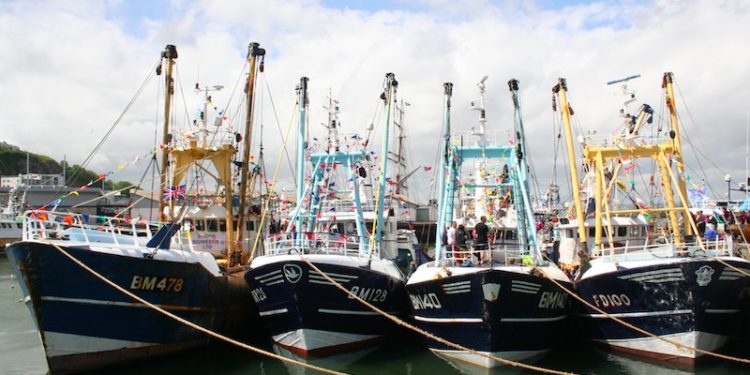The NFFO has welcomed the UK government’s white paper on fisheries, Sustainable Fisheries for Future Generations, outlining the vision for UK fisheries post-Brexit, stating that this is clear on the big issues and warning that the UK government is not in a position to sell out the fishing industry and survive.
‘On the big-ticket issues, the White Paper is clear and confident,’ an NFFO spokesman said.
‘To be sure, the EU27 will seek at every turn to blunt its application but in truth the EU only has one weapon in its armoury and that is the nuclear option of denying the UK a free trade deal unless the UK caves in on fisheries. That would hurt many businesses in the supply chain in the EU – at least as many as in the UK.’
The NFFO points out that the arithmetic of the British parliament is such that capitulation on fisheries is an issue that the government would not be able to survive.
‘It is self-evident that the Government has much work to do on its own positions before the next rounds of negotiations. On fisheries, however, as the White Paper spells out, the big issues relating to jurisdiction, access and quota shares, are already settled by international law: the UK becomes an independent coastal state. Everything else flows from that.’
The NFFO predicts that the White Paper will have required support across Whitehall, ‘and it spells out what the UK wants and expects.’
The spokesman commented that overall, the Government has not been noticeably coherent or cohesive in its preparations for a negotiated withdrawal agreement with the EU – but on fisheries, its broad position is clear, cogent, and apparently uncontroversial.
‘The Federation has been working closely with Defra since the referendum and has submitted papers on all the policy main areas. It is encouraging, therefore, that our principal objectives are shared in the White Paper.’
However, the NFFO points out that there are areas that require attention and there remains much to discuss.
These include how to operate a system of devolved responsibilities within an overall UK framework, which is underdeveloped in the White Paper.
‘Discussions continue and is unlikely that arriving at a satisfactory agreement will be easy or straightforward, given the toxic politics involved.’
The NFFO’s spokesman warns that cost recovery before the institutional arrangements are in place to give the industry shared responsibility, as discussed in the White Paper, would be premature, unjustified and very controversial, while auctioning incoming quota is a new concept with some obvious disadvantages and this will need detailed scrutiny.
‘The practicalities of a workable system of overage (permitting by-catches to be landed even though quotas are exhausted with a charge to disincentivise targeting) to address the problem of chokes under the landing obligation, will require close attention,’ the NFFO states, and adds that remote sensing undoubtedly has a future role to play in monitoring fishing activities.
‘The question is how and where and how does it fit into a partnership approach based on trust and confidence?’









